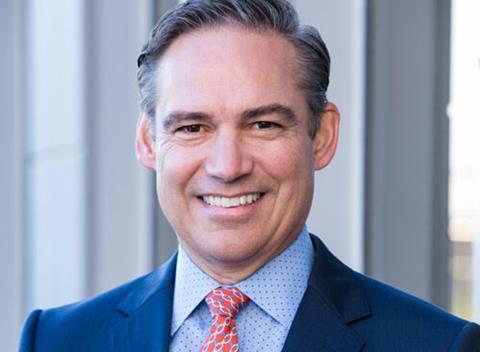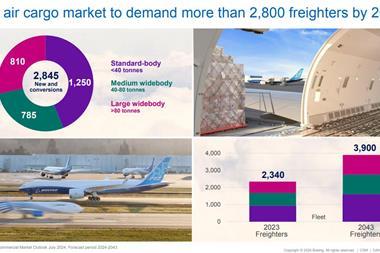
Boeing’s board of directors has elected Robert K (Kelly) Ortberg as the company's new president and chief executive.
The move will becomes effective on August 8.
Ortberg will succeed Dave Calhoun, who earlier this year announced his intention to step down and leave the company. He had served as president and chief executive since January 2020, as well as serving as a member of the board since 2009.
“The board conducted a thorough and extensive search process over the last several months to select the next [chief executive] of Boeing and Kelly has the right skills and experience to lead Boeing in its next chapter,” declared Steven Mollenkopf, chair of the board.
“Kelly is an experienced leader who is deeply respected in the aerospace industry, with a well-earned reputation for building strong teams and running complex engineering and manufacturing companies,” he added.
Ortberg began his career in 1983 as an engineer at Texas Instruments, later joining Rockwell Collins in 1987 as a programme manager.
He held increasingly important leadership positions at the company prior to becoming its president and chief executive in 2013.
After five years as head of Rockwell Collins, he steered the company's integration with United Technologies and RTX until his retirement from RTX in 2021.
Of his latest appointment, Ortberg remarked: “Boeing has a tremendous and rich history as a leader and pioneer in our industry, and I'm committed to working together with the more than 170,000 dedicated employees of the company to continue that tradition, with safety and quality at the forefront.
“There is much work to be done, and I'm looking forward to getting started.”
Challenging times
It has been a challenging few years for Boeing, not least because of the problems with the Boeing 737 MAX and whistleblower allegations of major flaws in its manufacturing processes, has not been easy.
“The Board would also like to thank Dave Calhoun for his strong leadership at Boeing, first as chair and then as [chief executive], when he stepped in to steer the company through the challenges of recent years,” Mollenkopf said.
Last month (July), Boeing slightly increased its prediction for the size of the global freighter fleet in 2043 due to expectations of both a lower retirement rate and an increase in new and converted aircraft.
In its latest commercial market outlook report, the manufacturer has predicted 2,845 new cargo aircraft will be needed by 2043, up on last year’s forecast of 2,825.
Retirements are also expected at a slower rate than in the previous forecast; 1,055 of today’s current freighter fleet will still be in operation in 2043, according to Boeing’s latest forecast, compared with 920 last year.
As a result, the worldwide freighter fleet is forecast to reach 3,900 aircraft in 2043, compared with 2,340 today. Last year, the company predicted the global freighter fleet would stand at 3,745 by 2043.
Also last month, Boeing announced that it had orders for 11 Boeing 777 freighters in June after a slow start to the year for orders of the model.
Earlier this week, Boeing announced it had lost $1.4bn in the Q2 period, significantly more than its $149m loss in the second quarter of 2023, with revenue coming in at $16.9bn down 15% year on year.















